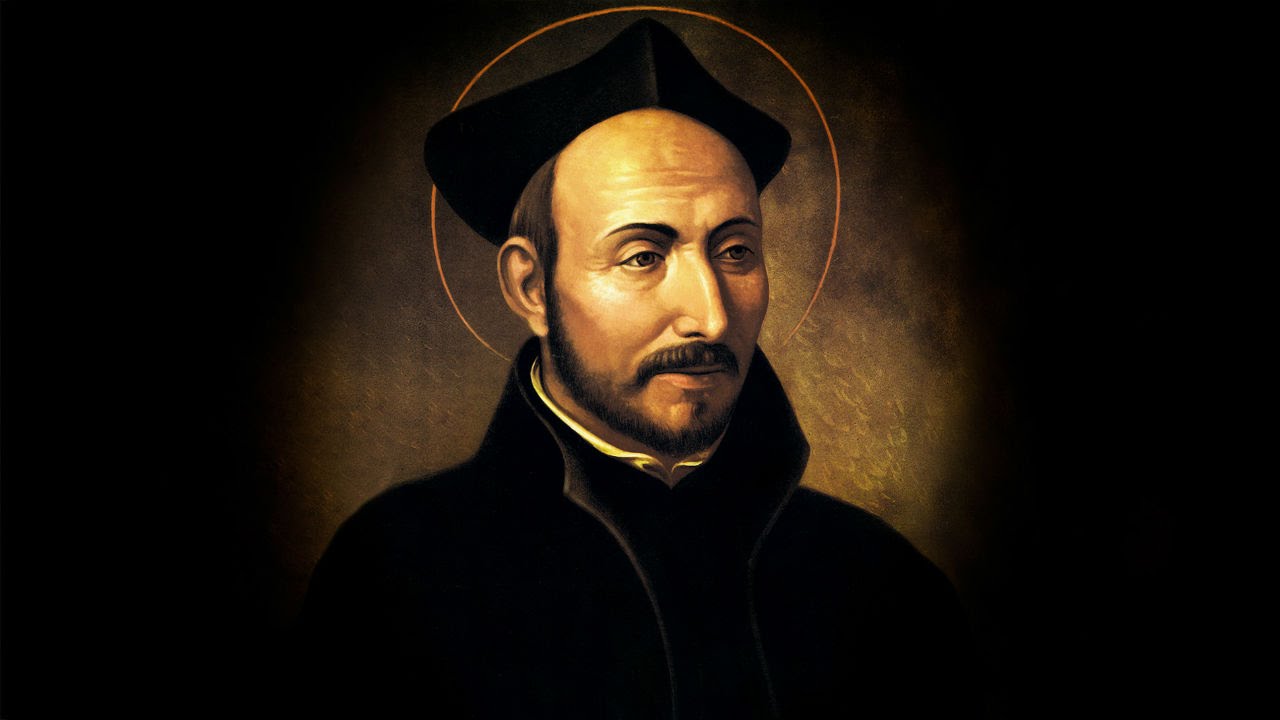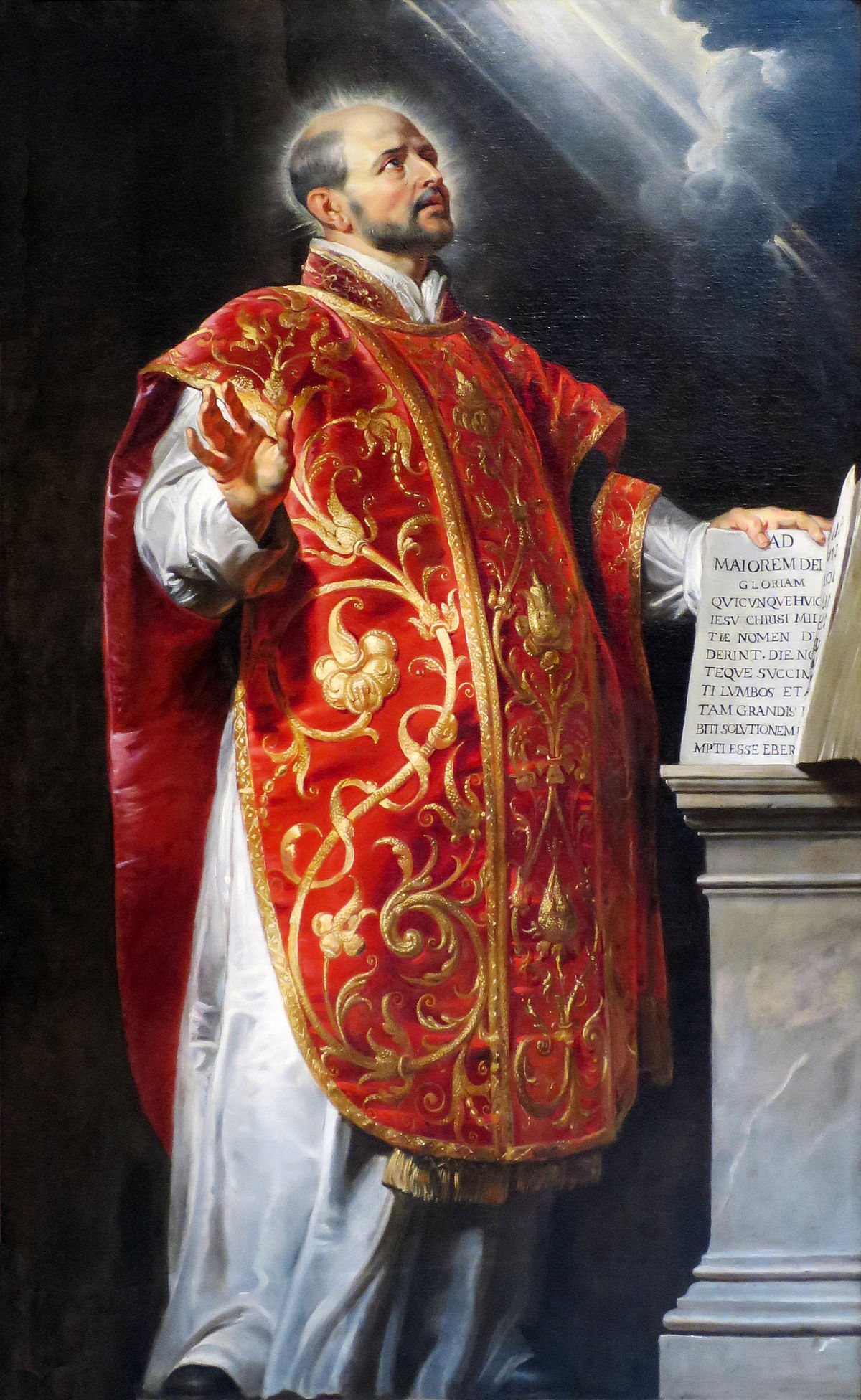Born Inigo Lopez de Loyola in Spain in 1491, he was the youngest of 13 children and his mother died when he was just 7. Despite losing his mother, he was still a member of the local aristocracy and was raised accordingly. He was ambitious with dreams of becoming a great leader.
At the age of 18, he became a soldier and seeking wider acclaim, he referred to himself as Ignatius which is a variant of his given name. He gained a reputation as a duelist, fought in several battles, and emerged unscathed. He was promoted to command his own troops.
In 1521, against a French attack, Ignatius was struck by a cannonball in the legs. After surgeries and much suffering, he began to improve. Part of one leg was amputated. During recovery, he read about the lives of the Saints and Christ. Having a profound impact, he became more devout and desired to become a working servant of Christ and entered the Benedictine Monastery, giving up his military past.
With his change he experienced doubts, anxiety and depression but understood these were not from God. He realized he needed an education to convert others and attended a children’s grammar school proceeding all the way up to studying at universities. Along his path, he engaged others in lengthy spiritual conversations which attracted the attention of the Inquisition.
The Inquisition ferreted out religious dissent and combated heresy, it was not as it’s been long depicted in the media. Members of the church accused Ignatius of preaching without formal education because it could possibly introduce heresy and confusion among the people. After questioning, he was exonerated.
He sought better schools and teachers and earned his master’s at the age of 44. He gathered friends and followers and the group visited Rome to present themselves. The Pope received them and approved them as an official religious order and they called themselves the Society of Jesus, later to be called “Jesuits”. Ignatius imposed strict military-like rule which surprisingly caused the order to grow.
Before his death in 1556, they had established 35 schools and 1,000 members. They were responsible for much of the work stopping the heretical spread of the protestant reformation and they are still very prominent today.
He is the patron saint of Jesuits, retreats, and spiritual exercises.
His feast day is July 31.
For God’s Glory.

